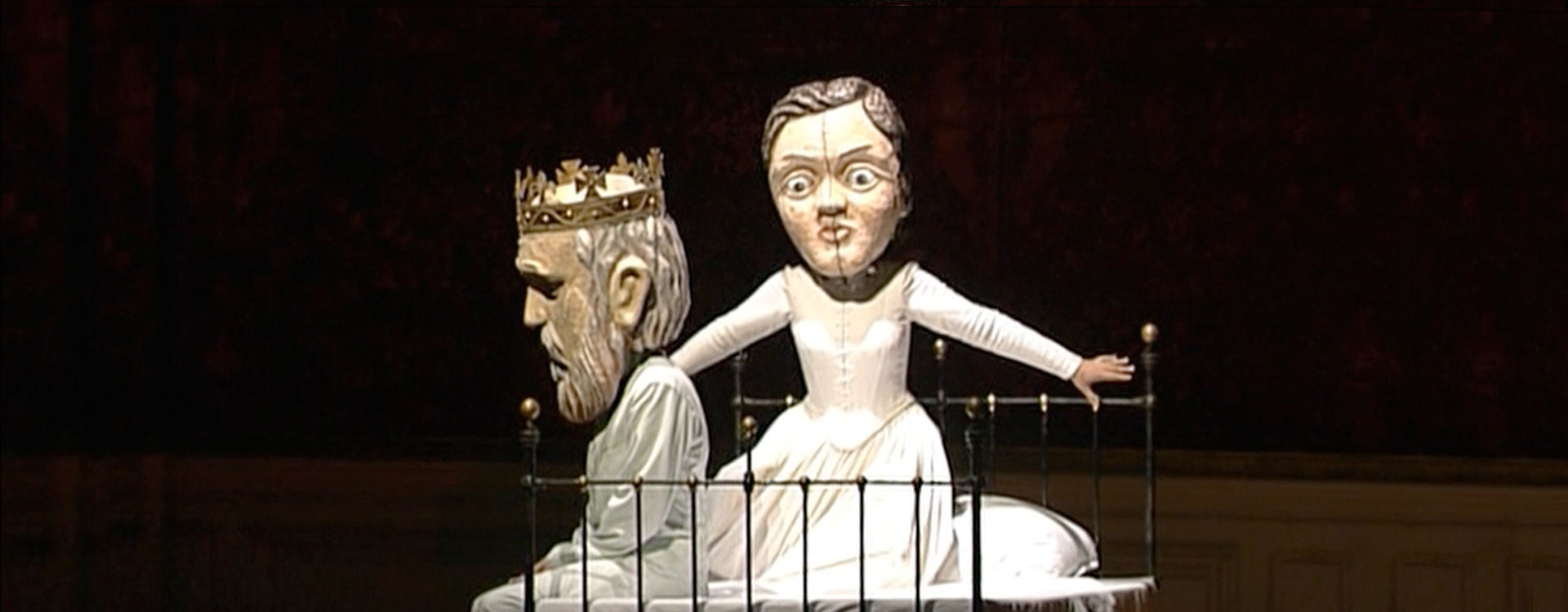
Iphigénie en Tauride
Director: Thomas Grimm
Distributor: Digital Classics Distribution Ltd.
Length: 108 mins.
16:9 | stereo & 5.1 surround sound
© 2001, a co-production with BR/3sat, RM Ass. & NHK
Distributor: Digital Classics Distribution Ltd.
Length: 108 mins.
16:9 | stereo & 5.1 surround sound
© 2001, a co-production with BR/3sat, RM Ass. & NHK
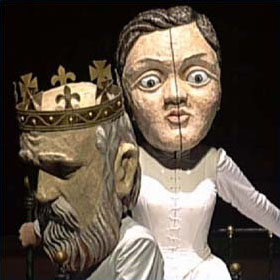
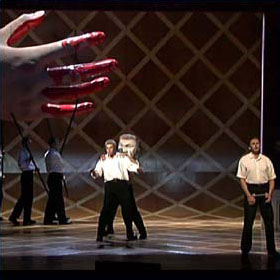
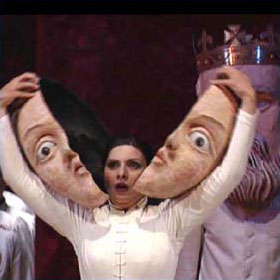
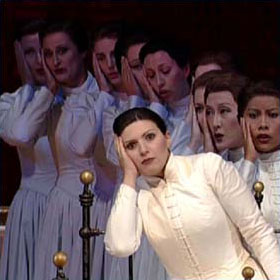

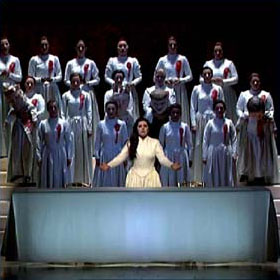
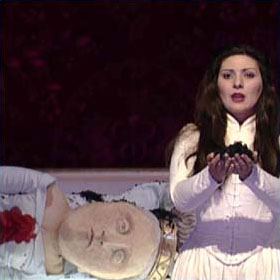
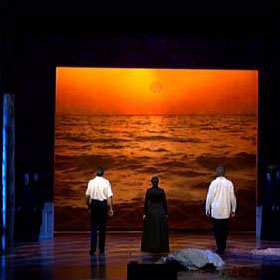
Iphigenia, daughter of Agamemnon and Clytemnestra, is living in exile on the island of Tauris, which is inhabited by the barbarian Scythians. Haunted by memories of the murder of her mother and father, she believes she was responsible for her brother Oreste’s death... At the heart of "Iphigénie of Tauride" is the psychological drama. The protagonists exist in a tense atmosphere of violated blood ties, fears and traumas, and are dominated by a sense of doom and predestination that only ends with release at the conclusion of the opera. In Klaus Guth’s Zurich production, this is underlined by his use of huge masks and enclosed spaces.
As Guth himself puts it: "I have often used such a system of masked figures to give visual expression to the inner psychological state of the individuals concerned." Gradually, the figures free themselves from these constraints and find their way back to normal life. "When we look on what he (Gluck) was trying to reform, it means simplicity. It means essentially getting rid of things", explains conductor William Christie. His typically transparent but never cold orchestral sound perfectly matches the descriptive elements in Gluck’s score.
Originally staged at the Salzburg Festivals, this production was revived at Zurich Opera with its Opera Orchestra La Scintilla; Anton Scharinger performs as Thoas, Juliette Galstian as Iphigiena, and Rodney Gilfrey sings the part of Oreste, with Deon van der Walt on his side as Pylades.
The DVD "Iphigénie en Tauride" includes the documentary "Gluck - The Reformer."
